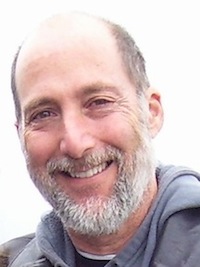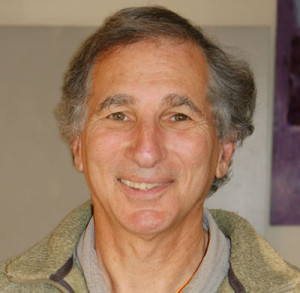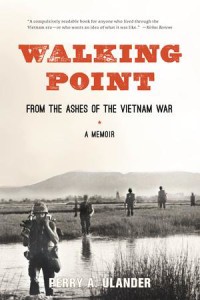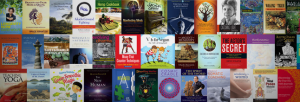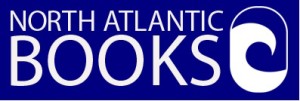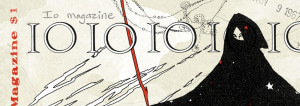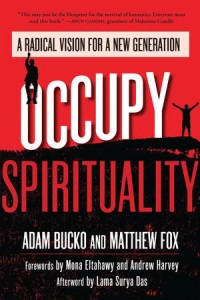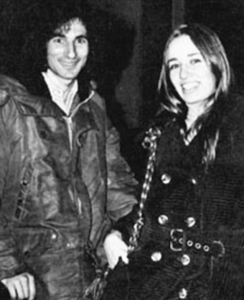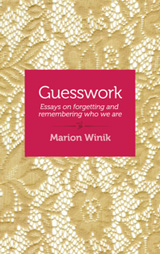Marc Nieson: Schoolhouse: Lessons on Love & Landscape
January 29, 2017 by David
Filed under Non-Fiction, WritersCast
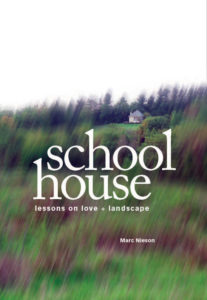 Schoolhouse: Lessons on Love & Landscape – Marc Nieson – Ice Cube Press – paperback – 9781888160925 – 272 pages – $19.95
Schoolhouse: Lessons on Love & Landscape – Marc Nieson – Ice Cube Press – paperback – 9781888160925 – 272 pages – $19.95
Memoirs are most often stories of self discovery. To work for readers, they have to engage us indirectly – we have to buy into the narrator’s central problem the story will show us being solved. Marc Nieson’s memoir is about a period in his life when he was confused about love and self-identity. He left his home and long term lover in New York City to attend the famed Writer’s Workshop at the University of Iowa, and ended up living in a former one room schoolhouse on 500 acres of beautiful Iowa landscape.
Escaping the travails of modern life, and living in the woods, the comparisons to Walden cannot help being made. City-bred Nieson learns how to observe the natural world, and in so doing, learns how to understand himself at the same time. Nieson keeps us involved throughout his narrative, and we come to the end of the story fully engaged in his personal adventure.
The book is structured like a schoolbook, each chapter being named after a school subject (i.e. Geography, History, Social Studies, What I Did On My Summer Vacation), which gives the book a certain charm, and while it’s a conceit, this organization helps keep the narrative moving forward. It’s a fully transformational story, even if you have never experienced the woods or the Iowa landscape.
As Nieson writes: “Here on a quiet Iowa hillside, I was hoping … to both learn and unlearn who I was. To try living not only alone and apart, but a more consciously observed life — both inside and out.” I think he achieved what he was hoping to do in Iowa.
“Those of us who have lived in old one-room schoolhouses understand the solitude, solace, and proximity to nature that they provide. During his year living in Union #9, Marc Nieson embraced these opportunities for inner growth. His new memoir—a must read—traces the story of his journey of discovery along the trail through the woods surrounding his house and along the path of human relationships. Read Schoolhouse, and you will open the door to the mind of an engaging voice, a probing, reflective writer who delights the reader with his lyrical prose on every page.”
—Mary Swander, author, Out of this World: A Woman’s Life Among the Amish
Marc Nieson has degrees from both the Iowa Writers’ Workshop and NYU Film School. His background includes children’s theatre, cattle chores, and a season with a one-ring circus. He’s been awarded a Raymond Carver Short Story award and recent fiction appears in Everywherestories: Short Fiction From A Small Planet (Press 53), Museum of Americana, and Tahoma Literary Review. He is also a screenwriter, whose credits include Speed of Life, The Dream Catcher, and Bottomland. He teaches at Chatham University in Pittsburgh, and is working on a new novel, Houdini’s Heirs.
In this interview, Marc and I talked in detail about this excellent book and his work as a writer and teacher. Special kudos to Ice Cube Press for publishing this memoir.
Author website here.
Ice Cube Press website here.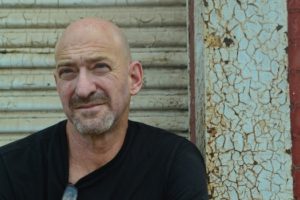
Podcast: Play in new window | Download
Tom Shroder: The Most Famous Writer Who Ever Lived
January 20, 2017 by David
Filed under Non-Fiction, WritersCast
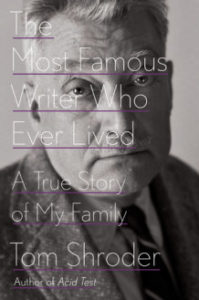 The Most Famous Writer Who Ever Lived: A True Story of My Family – Tom Shroder – Blue Rider Press – hardcover – 9780399174599 – 416 pages – $28 – published October 4, 2016 (ebook editions available at lower prices)
The Most Famous Writer Who Ever Lived: A True Story of My Family – Tom Shroder – Blue Rider Press – hardcover – 9780399174599 – 416 pages – $28 – published October 4, 2016 (ebook editions available at lower prices)
Tom Shroder is an excellent writer and an experienced editor who has had a long career as a journalist, as well as having also written some really interesting books. As it turns out, he is the grandson of the once-bestselling author, MacKinlay Kantor, who won the Pulitzer Prize in 1956 for his sprawling historical novel about the Civil War, Andersonville. I expect that a number of my listeners will have read that book, and many will quite possibly remember MacKinlay Kantor as someone who was an extremely well known and popular author in the fifties and sixties.
Like so many of us, Shroder grew up mostly taking his grandfather for granted, and while he was close with both his grandfather and grandmother, Tom did not really know very much about their actual lives before he was born, when their lives were very different. Their daughter, his mother, was also a writer as Tom was growing up, but he did not want to identify with the literary milieu of his youth. It was only later in his life that he was spurred to learn more about his family history, and to begin to understand himself within any kind of a personal literary context.
This book recounts the thoroughly compelling MacKinlay Kantor’s very colorful and intentional life as a writer, as well as weaving together Shroder’s own story, which is one of becoming a writer without perhaps intending to do so. It works amazingly well, and even if you have never read Andersonville or any of the other many books Kantor wrote during his long and checkered career, this particular book is likely to captivate you. It is full of wonderful stories and empathetic emotional connections.
Shroder’s journey to understanding who his grandfather was turns out to be almost as epic as Kantor’s actual life, full of twists and turns, discoveries and surprises. I read Andersonville long ago, and remember being fully engaged by its epic scope and historical detail. But I had forgotten that Kantor was also the ghost writer for Curtis Lemay later in his life, when things were not going so well for him. His was a complicated and very American 20th century story, story, and Shroder tells it exceptionally well.
Tom Shroder has been an award-winning journalist, writer and editor for nearly 40 years. His books include Acid Test: LSD, Ecstasy and the Power to Heal (2014), a mind-altering account of the resurgent research into the medical use of psychedelic drugs; Fire on the Horizon: the Untold Story of the Gulf Oil Disaster (2011) (co-author); and Old Souls: Compelling Evidence From Children Who Remember Past Lives (1999), a study of the border between science and mysticism.
He was the editor of The Washington Post Magazine between 2001 and 2009, where he oversaw Gene Weingarten’s two Pulitzer Prize-winning feature stories, “Fiddler in the Subway” and “Fatal Distraction.”
Shroder’s The Hunt for Bin Laden (2011) was based on 15 years of reporting by The Washington Post. Shroder is also known for co-creating the Tropic Hunt, a mass-participation puzzle which has become The Washington Post Hunt in Washington, D.C.
Shroder was born in New York City in 1954.
You can visit Shroder’s author website here.
“Fascinating…As Shroder vividly tells the story of this larger-than-life writer who was a generous and often doting grandfather, he contemplates the fleeting nature of fame….a biographical gold mine and an object lesson in the ultimate fading away of the best-selling, prize-winning success many writers dream about.”
—Susan Cheever, The Washington Post
This book was a pleasure to read, and the conversation with Tom Shroder was a lot of fun for me as well. He made this interview extremely easy for me to conduct.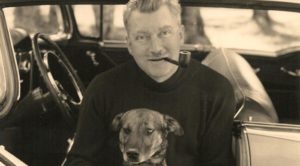
Podcast: Play in new window | Download
David Wilk interviews publisher and poet Merrill Leffler
December 18, 2016 by David
Filed under Publishing History, PublishingTalks
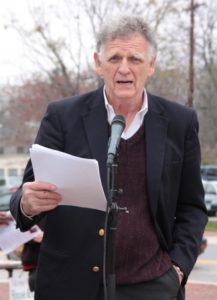 Publishing Talks began as a series of conversations with book industry professionals and others involved in media and technology about the future of publishing, books, and culture. I’ve talked with many people about how publishing is evolving as our culture is affected by technology within the larger context of changes in civilization and economics.
Publishing Talks began as a series of conversations with book industry professionals and others involved in media and technology about the future of publishing, books, and culture. I’ve talked with many people about how publishing is evolving as our culture is affected by technology within the larger context of changes in civilization and economics.
I’ve broadened the series to include conversations with editors and publishers who have been innovators and leaders in independent publishing both in the past and into the present. Through these talks, I hope to continue to explore the ebb and flow of writing, books, and publishing in all forms and formats, as change continues to affect our lives.
For the past several years, I’ve been talking to editors and publishers of independent presses about their work, including a number of important literary publishers. Most recently, I had the pleasure of speaking with Merrill Leffler, the co-founder and publisher of Dryad Press. Leffler and his publishing program have been fixtures in the Washington, D.C. area poetry and indie press scene, but are by no means local in interests or scope of work.
Merrill and his friend Neil Lehrman published the first issue of Dryad, a small poetry magazine, in 1968. Their journal, like many others in that era, began as a quarterly. After the first several issues, their publication dates became more variable, and in roughly 1975, Dryad evolved into Dryad Press — two issues of the magazine were sent to subscribers as books. In a further evolution over the years Dryad expanded from publishing poetry to include fiction and non-fiction as well.
With almost a half century of self-taught publishing behind him, Merrill Leffler, a writer and poet of some note himself, has much to talk about. In this conversation, we talked about the history of Dryad and its evolution as part of the modern era of independent publishing, as well as poetry, fiction, and much more.
Compared to many other writers and independent press publishers, Leffler has an unusual and singular background. He was trained as a physicist, worked for NASA’s rocket program and was the senior science writer at the University of Maryland Sea Grant Program, where he focused on research involving the biology of the Chesapeake Bay. In addition, for a number of years he taught English at the US Naval Academy in Annapolis.
Merrill Leffler has also published three collections of his poetry, most recently a collection called Mark the Music. There’s a great article about him (“Can a poet lose weight by snacking on poems?”) that mentions his role as the Poet Laureate of Takoma Park, Maryland here. And an excellent piece about Dryad and its history by Leffler at a DC area literary website called Splendid Wake.
Leffler is warm, generous, and was a pleasure for me to speak with. I hope you enjoy this interview as much as I did! 
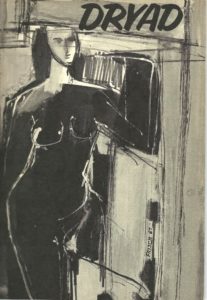
Podcast: Play in new window | Download
Charles Kaiser: The Cost of Courage
December 12, 2016 by David
Filed under Non-Fiction, WritersCast
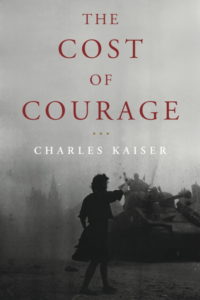 The Cost of Courage – Other Press – Hardcover – 288 pages – 9781590516140 – $26.95 (ebook versions available at lower prices)
The Cost of Courage – Other Press – Hardcover – 288 pages – 9781590516140 – $26.95 (ebook versions available at lower prices)
I read this beautifully written book about one family’s experience of World War II in France just before our recent election. At that time, I was not expecting to have to think about it in the context of our own political situation. Even without understanding that the incredible courage of his subjects may be instructive to us today, this book is about an incredible story of bravery and sacrifice. As of this moment, The Cost of Courage must be read in a new context.
All of us need to consider the lessons learned from the experience of everyday people in horrible circumstances like those of the French in occupied France. These were times of brutal repression and daily violence for individuals who constantly made momentous moral decisions with life and death consequences.
The Cost of Courage recounts the true story of the three youngest children of a bourgeois Catholic family, who worked heroically in the French Resistance during the Nazi occupation of France. Charles Kaiser was lucky enough to know this family from the time he was a small boy, because his uncle was billeted with them after the liberation of Paris by Allied forces.
In 1943, André Boulloche was working underground as General Charles de Gaulle’s military representative in Paris, coordinating Resistance activities in northern France. Unfortunately, he was betrayed by one of his associates, arrested and taken prisoner by the Gestapo. His two younger sisters continued to fight against the Germans until Paris was freed in 1944. André Boulloche managed to survive his time in three concentration camps through sheer force of will.
The elderly Boulloche parents and the oldest brother were also arrested when the Gestapo tried to capture the two sisters. Tragically, these three were on the last train the Germans ran from Paris to Germany before the Allies liberated the city, and they died soon after in Nazi concentration camps.
After the war, the Boulloches remained silent about their terrible wartime. Ultimately, Charles was able to convince the last surviving sister to finally tell her family’s incredible story. The Boulloche story is moving and powerful, and we are fortunate it could be told to us by this fine and sensitive writer.
It was a true pleasure for me to be able have this opportunity to talk to Charles about his book and his experience of writing it. Charles and I were in high school together, but have had very little contact since then, and while I have followed his outstanding career as a journalist and author, we have not talked often over these many years. I am gratified to have read this book, and have been inspired by its story. I urge my listeners to read The Cost of Courage, as we are ourselves now live through times that will challenge our own willingness to pay the true cost of courage.
Charles Kaiser started writing for The New York Times while still an undergraduate at Columbia. He spent five years at the Times as a reporter, and after that was the press critic at Newsweek for two years. After writing about media and publishing for the Wall Street Journal, he wrote his first book, 1968 in America, published in 1988. His highly praised book, The Gay Metropolis was published in 1997.
His writing has appeared in New York, the New York Observer, Vanity Fair, the Washington Post, the Los Angeles Times and Manhattan,Inc. among many other publications.
Kaiser was a founder and former president of the New York chapter of the National Lesbian and Gay Journalists Association. He has taught journalism at Columbia and Princeton, where he was the Ferris Professor of Journalism. To learn more about his work, visit his website here.
“In this poignant personal tale, Kaiser explores the emotions and breaks through the silences that haunted an amazing family after their experiences in the French resistance to Nazi occupation. The result is a compelling and heart-wrenching book about courage, love, and the complex shadings of heroism.”
—Walter Isaacson
Podcast: Play in new window | Download
Abigail Tucker: The Lion in the Living Room
December 4, 2016 by David
Filed under Non-Fiction, WritersCast
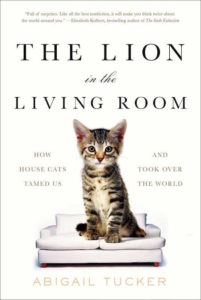 The Lion in the Living Room: How House Cats Tamed Us and Took Over the World – Simon & Schuster – 256 pages – ISBN 9781476738239 – October 2016 – $26.00 (ebook versions available at lower prices)
The Lion in the Living Room: How House Cats Tamed Us and Took Over the World – Simon & Schuster – 256 pages – ISBN 9781476738239 – October 2016 – $26.00 (ebook versions available at lower prices)
Let me start off by stating forthrightly that I am not a cat person. I much prefer dogs. But I am intrigued by the fact that so many otherwise rational people are completely irrational about cats. And while I don’t love them, I certainly do not hate cats, and am interested in understanding their role in human culture. It’s always seemed that the cat’s relationship to humans is more complicated than that of the dog, and this thoroughly compelling – and entertaining – book by science writer, Abigail Tucker, certainly makes that clear.
Tucker covers alot of ground with this book, and it will be a fun read not just for those who are besmirched with cat fancy. As the fine science writer she is, Abigail Tucker has taken years of research into animal biology, as well as human and animal behavior, and made a great story out of it all.
If you love cats, this book will help you understand why, and may even teach you how to be a better (and more effective) cat owner. If you are more of a cat tourist, or even if you don’t like them at all, you still will want to know more about what makes them tick. After all, these are semi-untamed apex predators living in our homes. That’s a pretty interesting notion to consider just by itself.
Tucker shows great humor and personality throughout this book, as she demonstrates that these animals, whose powers we have probably underestimated, have managed (us) to become one of the most dominant species on our planet. That may help all of us understand who these beasts are that live among us.
As Tucker says about the book herself:
It wasn’t until recently that I felt ready to cover an animal whose habitat is also my own house. But as soft and fuzzy as domestic cats may initially seem, The Lion in the Living Room presented a major journalistic challenge, since I hoped to simultaneously draw from the two schools of animal-writing: using the strange story of house cats’ rise to global dominance as a means to understand humanity’s vast environmental influence and — more importantly — as a narrative end unto itself. Rather than snuggling my subjects close, I tried to keep house cats at arm’s length, like termites or red-painted rattlers, to be handled with snake hooks and trembling hands — the better to see them for the exquisite conquerors they really are.
Abigail Tucker is a correspondent for Smithsonian magazine, where she has covered a wide range of topics from vampire anthropology to bioluminescent marine life to the archaeology of ancient beer. The Lion in the Living Room is her first book. She now lives in Ridgefield, Connecticut, where she grew up (as I did as well).
Abigail and I had a wide-ranging chat about this book that I hope you will enjoy as much as I did. You can read or listen to an excerpt of the book here at the (very good) Simon & Simon site.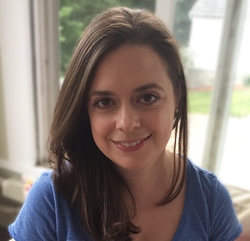
![]()
Podcast: Play in new window | Download
David Wilk Interviews Richard Grossinger of North Atlantic Books
May 22, 2016 by David
Filed under Publishing History, PublishingTalks, The Future
Publishing Talks began as a series of conversations with book industry professionals and others involved in media and technology about the future of publishing, books, and culture. As we continue to experience disruption and change in all media businesses, I’ve been talking with some of the people involved in our industry about how publishing might evolve as our culture is affected by technology and the larger context of civilization and economics.
I’ve now expanded the series to include conversations that go beyond the future of publishing. I’ve talked with editors and publishers who have been innovators and leaders in independent publishing in the past and into the present, and will continue to explore the ebb and flow of writing, books, and publishing in all sorts of forms and formats, as change continues to be the one constant we can count on.
It’s my hope that these conversations can help us understand the outlines of what is happening in publishing and writing, and how we might ourselves interact with and influence the future of publishing as it unfolds.
Over the past few years, I’ve talked to a number of independent publishers in an effort to document the extraordinary period of the past 40 years, which has been a sort of golden age of innovation and creativity, as publishing has literally been redefined. The number of great publishers established during this time in almost every category of publishing is pretty incredible.
One of the presses that has had a special impact on my own work is North Atlantic Books, founded by Richard Grossinger and Lindy Hough, as a transformation of their literary journal, Io, which they began together in 1965 as undergraduates at Amherst and Smith Colleges respectively. Richard and Lindy have been important mentors, friends, and colleagues to me for more than forty years, and their influence on my thinking about writing, ideas and books has been profound.
Since both Richard and Lindy are writers and editors with their own individual interests and styles, I thought it would make sense to interview each of them separately for this Publishing Talks series of conversations. Each of these conversations can stand independently or together. They tell two versions of an almost mythologic story, which I hope listeners will find as compelling as it was for me when I spoke to them.
Io is one of a number of influential literary magazines established in the sixties and seventies, publishing poets, film-makers and visual artists, many of whom were related to what has become known as the New American Poets, with influences ranging from Black Mountain College and the New York School to hermeticism and mystical spirituality. Io was singular in that it was most frequently a one-subject magazine, and this led eventually to the establishment of North Atlantic Books, which was incorporated in 1974 as a non-profit literary publisher in California.
Richard Grossinger was born November 3, 1944, and grew up in Manhattan. He graduated from Amherst College in June 1966 with a B.A. in English. That same month he married Lindy Hough, who attended Smith College in Northampton, Massachusetts.
He received a Ph.D. in anthropology from the University of Michigan for an ethnography incorporating economic and ecological studies of fishing communities in Eastern Maine and subsequently taught anthropology and other subjects at the University of Maine and Goddard College.
Io published 23 issues through 1976 before merging with North Atlantic and converting its publications to anthologies thereafter. Richard and Lindy served as the co-publishers of North Atlantic Books from 1974 onward, and Grossinger now functions mainly as acquisitions editor, while the press is run by its staff and board of directors.
Grossinger is the author of many books including Planet Medicine, The Night Sky, Embryogenesis, New Moon, Migraine Auras, On the Integration of Nature, and The Bardo of Waking Life.
This is the “official” description of North Atlantic Books, taken from its website:
North Atlantic Books is a nonprofit publisher committed to an eclectic exploration of the relationships between mind, body, spirit, and nature. Founded in 1974 by Richard Grossinger and Lindy Hough, NAB aims to nurture a holistic view of the arts, sciences, humanities, and healing. Over the decades, it has been at the forefront of publishing a diverse range of books in alternative medicine, ecology, and spirituality. NAB is the publishing program of the Society for the Study of Native Arts and Sciences, a 501(c)(3) nonprofit educational organization that promotes cross-cultural perspectives linking scientific, social, and artistic fields. With more than one thousand books in print, NAB has operated from Berkeley, California, since 1977.
My conversation with Richard Grossinger was recorded in December, 2016. This interview runs 52 minutes.
More about Richard Grossinger here.
Richard’s history of North Atlantic Books is on his website here. Companion interview with co-editor and co-publisher Lindy Hough is here.
Podcast: Play in new window | Download
David Wilk interviews Lindy Hough of North Atlantic Books and Io Magazine
May 9, 2016 by David
Filed under Ebooks and Digital Publishing, Publishing History, PublishingTalks, The Future
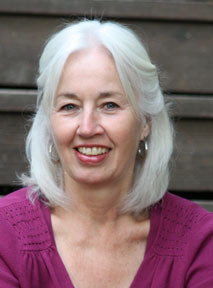 Publishing Talks began as a series of conversations with book industry professionals and others involved in media and technology about the future of publishing, books, and culture. As we continue to experience disruption and change in all media businesses, I’ve been talking with some of the people involved in our industry about how publishing might evolve as our culture is affected by technology and the larger context of civilization and economics.
Publishing Talks began as a series of conversations with book industry professionals and others involved in media and technology about the future of publishing, books, and culture. As we continue to experience disruption and change in all media businesses, I’ve been talking with some of the people involved in our industry about how publishing might evolve as our culture is affected by technology and the larger context of civilization and economics.
I’ve now expanded the series to include conversations that go beyond the future of publishing. I’ve talked with editors and publishers who have been innovators and leaders in independent publishing in the past and into the present, and will continue to explore the ebb and flow of writing, books, and publishing in all sorts of forms and formats, as change continues to be the one constant we can count on.
It’s my hope that these conversations can help us understand the outlines of what is happening in publishing and writing, and how we might ourselves interact with and influence the future of publishing as it unfolds.
Over the past few years, I’ve talked to several independent publishers in an effort to document the extraordinary period of the past 40 years, which has been a kind of golden age of innovation and creativity as publishing has literally been redefined. The list of great publishers established during this time in almost every category of publishing is amazing.
One of those presses that has had a special impact on my own work is North Atlantic Books, founded by Richard Grossinger and Lindy Hough as an outgrowth of their literary journal called Io, which they began together in 1965 when they were undergraduates at Amherst and Smith Colleges respectively. Richard and Lindy have been mentors, friends, and colleagues of mine for more than forty years, and their influence on my thinking about writing, ideas and books has been profound.
Since both Richard and Lindy are writers and editors with their own individual interests and styles, I thought it would make sense to interview each of them separately for this series of conversations. These two conversations can stand independently or together. They tell two versions of an amazing and almost mythologic story, which I hope listeners will find as compelling as it was for me when I spoke to them.
Io Magazine traveled with Lindy and Richard, moving to Michigan, Maine, Vermont and eventually California. Io is one of a number of influential literary magazines established in the sixties and seventies, publishing poets, film-makers and visual artists, many of whom were related to what has become known as the New American Poets, with influences ranging from Black Mountain College and the New York School to hermeticism and mystical spirituality. Io was singular in that it was most frequently a one-subject magazine, and this led eventually to the establishment of North Atlantic Books, which was incorporated in 1974 as a non-profit literary publisher in California.
North Atlantic Books has become one of the most successful and influential independent presses in America with a strong focus on spirituality and alternative health, while continuing its commitment to literary publishing.
Lindy graduated from Smith College and received an MFA in Creative Writing at Goddard College. She is the author of seven books of poetry, non-fiction, and fiction (including one book I published in 1978, the excellent Outlands & Inlands). She has taught literature and writing in Michigan, Maine, Vermont and California, and is currently finishing a novel.
This is the “official” description of North Atlantic Books, taken from its website:
North Atlantic Books is a nonprofit publisher committed to an eclectic exploration of the relationships between mind, body, spirit, and nature. Founded in 1974 by Richard Grossinger and Lindy Hough, NAB aims to nurture a holistic view of the arts, sciences, humanities, and healing. Over the decades, it has been at the forefront of publishing a diverse range of books in alternative medicine, ecology, and spirituality. NAB is the publishing program of the Society for the Study of Native Arts and Sciences, a 501(c)(3) nonprofit educational organization that promotes cross-cultural perspectives linking scientific, social, and artistic fields. With more than one thousand books in print, NAB has operated from Berkeley, California, since 1977.
Richard and Lindy are now retired from full time work with the press they founded, and each is now actively writing and editing books.
Our conversation was recorded in December, 2016. (55 minutes runtime)
Podcast: Play in new window | Download
Janice P. Nimura: Daughters of the Samurai
October 6, 2015 by David
Filed under Non-Fiction, WritersCast
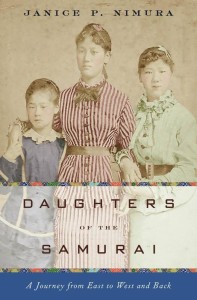 DAUGHTERS OF THE SAMURAI: A JOURNEY FROM EAST TO WEST AND BACK
DAUGHTERS OF THE SAMURAI: A JOURNEY FROM EAST TO WEST AND BACK
978-0-393-07799-5 – W.W. Norton – Hardcover – 336 pages – $26.95 (ebooks available at lower prices, paperback edition to be published in May 2016)
Janice Nimura’s Daughters of the Samurai is a wonderful book about an extraordinary and little known episode in modern Japanese history. In 1871, soon after the Japanese civil war that led to the modernization of the country, the Japanese government decided to send five young girls to the United States to educated. They were sent along with a delegation of diplomats and civil servants, with a very specific mission to be educated in modern Western ways and then to return to help create new generation of men and women to lead Japan. While each of these young girls had been raised in very traditional samurai households, they were all displaced from their families and clans. Three of the girls stayed the course, while the other two girls went home.
On their arrival in San Francisco, and later, traveling across the country, the Japanese girls became significant public celebrities, written about by newspapers across everywhere. It’s incredible to imagine what it must have been like for the girls as well as for the American public, who had never seen anyone from Japan before.
Sutematsu Yamakawa, Shige Nagai, and Ume Tsuda all were raised in middle class or upper middle class homes in the United States and grew up in many ways as typical American schoolgirls, despite their obvious differences from their American friends and family members. Within the families and then in the various schools and colleges they attended, they developed lifelong friendships and connections, and after their ten year sojourn was completed, they returned home to Japan almost as foreigners.
They had started their sojourn in America in radically cross-cultural environments and experiences, then learned a completely new culture, only to return home as yet again out-of-place foreigners, this time in the culture they actually came from. Their unusual experience gave them an incredibly unusual perspective on Japanese culture. As adult women living in a still male dominated society struggling with the tension between modernity and tradition, they each determined to revolutionize women’s education and lead their country forward. Ume Tsuda, in particular, made a significant impact on Japanese education that continues into the modern era.
It’s impossible not to be captivated by these incredible women and their life stories, both in the United States and in Japan. Nimura’s narrative is fascinating and compelling; she brings to life what was once an obscure piece of history, and through the lens of these interesting women, a period in both American and Japanese history of great change in every aspect of culture.
After reading Daughters of the Samurai, it’s impossible not to want to share the story with anyone who will listen. I am fortunate that I was able to talk about it with the author herself. This is a book I am happy to recommend to readers.
Janice Nimura graduated from Yale and then moved to Japan with her new husband, where she lived for three years, became proficient in Japanese, and later earned a Masters degree from Columbia in East Asian Studies, specializing in 19th century Japanese history. At one point she stumbled across a book written by Alice Mabel Bacon (originally from New Haven) called A Japanese Interior, which is about Bacon’s visit to Japan in the 1880s. Alice Bacon’s story captured Nimura’s imagination. She learned about Sutematsu Yamakawa Oyama, Bacon’s foster sister and Vassar’s first Japanese graduate; Ume Tsuda, whose pioneering women’s English school Alice helped to launch; and Shige Nagai Uriu, the third of the little girls who arrived with the Iwakura Mission in 1872 and grew up in America, and then took up the challenge of researching and writing about this amazing episode in modern Japanese and American history.
Author website here.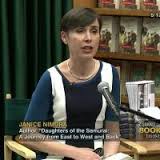
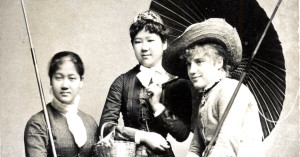
Podcast: Play in new window | Download
Martin Goldsmith: Alex’s Wake
July 6, 2015 by David
Filed under Non-Fiction, WritersCast
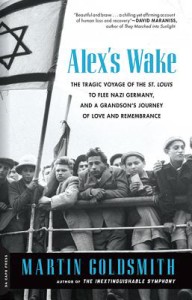 978-0-306823-71-8 – DaCapo Press – paperback – 352 pages – $15.99 (ebook editions available at lower prices)
978-0-306823-71-8 – DaCapo Press – paperback – 352 pages – $15.99 (ebook editions available at lower prices)
I seem to have an inordinate interest in books about the Holocaust, doubtless because I think about my unknown relatives who perished in Lithuania and Poland during WW II, and feel somehow that knowing what happened to other Jews in that awful time will help me imagine the story of what happened to my own relatives. It’s difficult not to wish that there were more accounts of heroic escapes from the Nazis and their allies in every country they occupied, but more often than not, the stories we do get to know are deeply sad, frustrating, or horrific.
Martin Goldsmith’s parents came to the United States in 1939 from Germany, having survived the Nazi regime only because they were classical musicians who played in the Kulturbund, a special group of Jewish musicians that entertained other Jews in Germany (that was the subject of Martin Goldsmith’s last book, THE INEXTINGUISHABLE SYMPHONY: A True Story of Music and Love in Nazi Germany).
This new book, Alex’s Wake, is principally the story of Goldsmith’s grandfather and uncle, who tried to escape Germany in 1939 on the ill-fated journey of the German luxury liner, the SS St. Louis, which took more than 900 Jewish refugees (at their own expense, paying high prices to the German steamship company) across the Atlantic, first to Havana and then, having been turned away by the Cubans, to the USA and Canada, which also refused the refugees entry to their countries. This meant that the ship had to sail back to Europe, where amazingly and after great effort, the refugees were accepted by England, Holland and France. Only those who went to England truly escaped, however, as soon after the Germans overran both France and Holland, and these forlorn, long suffering escapees were once again under the thrall of the Nazis, who now could kill European Jews without restraint.
Goldsmith’s father suffered lifelong guilt for not being able to rescue his father and brother (and one must imagine, also his mother and sister, whose stories are really not told here, but who also were murdered in the war). That guilt was ineffably passed on to the grandson, and this book is Martin’s attempt to expiate that guilt, and to understand as much as it is possible, the story of his family’s travails more than 70 years ago.
Goldsmith and his wife traveled to Europe, spending six weeks retracing the journey of his antecedents, Alex and Helmut Goldschmidt. That journey forms the structure of the book, around which is built the narrative of his family’s formerly happy and successful life in Germany, their struggles to escape the Nazis, the terrible journey of the SS St. Louis , and especially moving, the detailed tracking of Alex and Helmut’s terrible time in occupied France where their hopes were truly lost, and where, after great suffering, they were transported to Auschwitz and finally their deaths. Along the way, Goldsmith learns a great deal about his family’s life in Germany, meets many interesting people, and in fact helps to change the lives of others as well as his own.
This is a fine example of narrative nonfiction and while at times painful, well worth reading. Goldsmith’s improbable effort to expiate his family’s guilt and suffering brought forth forgiveness and a sort of transcendence both for himself and others involved in the story, and the book’s honesty and beauty in the face of pain enables us to overcome the sorrow that inevitably arises when experiencing a story of deeply felt pain and loss. He’s an engaging writer and memoirist, and a fine storyteller.
Martin Goldsmith has been a radio host for public radio and Sirius XM, where he now is director of classical music programming and appears on the Symphony Hall channel. Goldsmith has also sung with the Baltimore Opera Company and the Washington Opera. He has also acted in Washington-area theaters, including Arena Stage. His music reviews have appeared in the Washington Post and he is the author now of three books, including Alex’s Wake.
Website for the book is here. Alert – we had a really good conversation so this interview runs slightly long at almost 42 minutes.
Podcast: Play in new window | Download
Marion Winik: Three books
February 8, 2015 by David
Filed under Non-Fiction, WritersCast
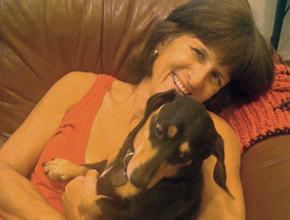 This interview with the talented essayist Marion Winik is unusual, as it is about three different (short) books Marion has published with the relatively new digital publisher SheBooks (“Every Woman Has a Story”). Since Winik, for a long time composed audio essays for NPR’s “All Things Considered” (archived here), she is pretty smart about doing interviews, so I thought we would be able to cover these three books, as well as talking a bit about SheBooks and Marion’s career as writer. I think she did a great job on all counts. I’d recommend a visit to her website too, lots of links, current information, and general literary goings on.
This interview with the talented essayist Marion Winik is unusual, as it is about three different (short) books Marion has published with the relatively new digital publisher SheBooks (“Every Woman Has a Story”). Since Winik, for a long time composed audio essays for NPR’s “All Things Considered” (archived here), she is pretty smart about doing interviews, so I thought we would be able to cover these three books, as well as talking a bit about SheBooks and Marion’s career as writer. I think she did a great job on all counts. I’d recommend a visit to her website too, lots of links, current information, and general literary goings on.
The three short books from SheBooks we talk about in this interview, all of which reflect Marion’s wonderful wit and stylish writing:
August in Paris is a collection of travel stories told with great humor and affection, “from lost teenagers and missed connections to overpriced drinks and gambling mishaps.” I don’t know how she does it, but she keeps her bearings throughout.
The End of the World as We Know It collects nine essays about parenting and family, beginning with the story of her second wedding and subsequent move to rural Pennsylvania. She covers a broad range of subjects, from blended families, to having kids in her 40’s and eventually to dealing with the legal problems that sometimes arise with teenage boys. Very much along the lines of her NPR pieces.
Guesswork is a collection of essays about memory and identity. One of my favorites, ”The Things They Googled” looks at search engines and their effects on our lives. These eight essays will inspire you to reconsider your own history and sense of self from new angles: how treasured places and objects fit in, how your life as a reader shapes who you are.
You can purchase these and other books directly from SheBooks (they already have a really extensive and impressive list of publications) here or from Barnes & Noble, Amazon and probably other ebook retailers, all at reasonable prices. Buy direct and you support the publisher and its authors.
Marion Winik’s (very abbreviated) biography in her own words:
“I was born in Manhattan in 1958 and raised on the Jersey shore. I graduated from Brown in 1978 and got my MFA from Brooklyn College in 1983.
Throughout my childhood and into my twenties, I wrote poetry. Some of it was published in two small-press books. In the late eighties—by which time I was living in Austin, Texas with my first husband, Tony—I began writing personal essays.
These days I live with my daughter Jane and our dachshund, Beau, in the beautiful Evergreen neighborhood of Baltimore. What a fabulous, underrated town this is. I teach writing in the MFA program in Creative Writing & Publishing Arts at the University of Baltimore. I write a column at BaltimoreFishbowl.com, and have a new memoir from Globe Pequot Press. It’s called Highs in the Low Fifties: How I Stumbled Through The Joys of Single Living.”
And here is something about the digital publishing start up, Shebooks: a curated collection of short e-books written by women, for women. All of our stories are easy to download and read on any digital device—and so good you’ll finish them in an hour or two. We like to think of ourselves as an e-book boutique, the kind where you’ll always find a story to fit your busy life.
Whether short fiction, memoir, or journalism, all Shebooks are handpicked by discerning magazine and book editors and written by women you either know of or will want to know. And because we offer our e-books by subscription as well as individually, you need never be without a great story to read.
As anyone who listens to WritersCast knows, I’m always interested in new publishing models. SheBooks certainly represents one of those new models. I think we will revisit them in a little while to see how this venture turns out. I hope it works – we need more digital publishing that tries to break out of the existing structures and models to try out different approaches to engaging with readers.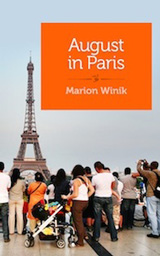
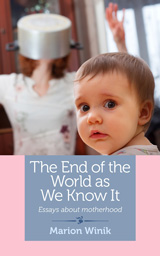
Podcast: Play in new window | Download

